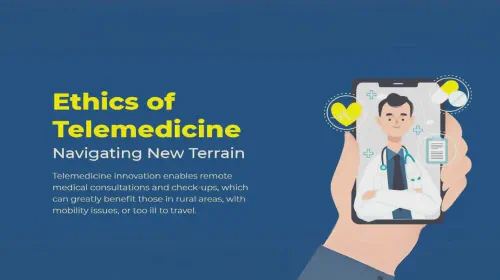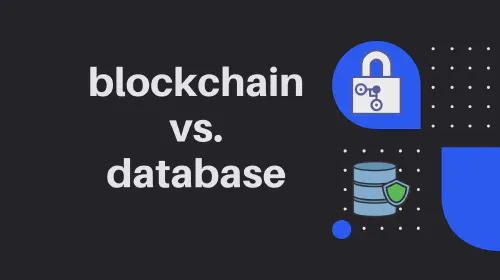Understanding the Purpose of GDPR: Safeguarding Data and Privacy
Salomon Kisters
Jul 7, 2023This post may contain affiliate links. If you use these links to buy something we may earn a commission. Thanks!
The General Data Protection Regulation (GDPR) is a comprehensive set of regulations enacted by the European Union (EU) to protect the privacy and personal data of its citizens.
It is a framework designed to empower individuals and ensure that their personal information is handled with care by organizations across various industries.
In this blog post, we will delve into the purpose of the GDPR and explore how it aims to safeguard data and privacy.
Enhancing Data Protection Regulations
The GDPR was introduced as an enhanced replacement for the Data Protection Directive of 1995, with the goal of updating privacy laws to keep pace with the evolving technological landscape. Its purpose is twofold: to give individuals more control over their personal data and to establish clear obligations for organizations regarding the collection, processing, and storage of such data.
Giving Individuals Control
At the heart of the GDPR’s purpose is the concept of individual control over personal data. It emphasizes that individuals should have the ability to determine how their data is collected, used, and shared. This means organizations must obtain clear and informed consent from individuals before processing their data. The GDPR also grants individuals the right to access their data, rectify any inaccuracies, and request its erasure in certain circumstances.
Ensuring Transparency and Accountability
Transparency is crucial in establishing trust between individuals and organizations. The GDPR requires organizations to be transparent about their data processing practices by providing individuals with clear, concise, and easily understandable information. This includes informing individuals about the purposes for which their data is being processed, the legal basis for such processing, and the recipients or categories of recipients to whom the data may be disclosed.
Furthermore, organizations are now required to appoint a Data Protection Officer (DPO) to ensure compliance with the GDPR. The DPO acts as a point of contact for individuals and supervisory authorities, ensuring that organizations are accountable for their data processing activities and that appropriate measures are in place to protect personal data.
Strengthening Data Security Measures
One of the core aims of the GDPR is to strengthen data security measures and prevent unauthorized access to personal data. Organizations are required to implement appropriate technical and organizational measures to ensure the security and confidentiality of the data they handle. These measures can include encryption, pseudonymization, regular data backups, and resilience against potential data breaches.
In the event of a data breach, organizations are obligated to notify the relevant supervisory authority within 72 hours. In certain cases, individuals affected by the breach must also be informed. This ensures prompt action is taken to mitigate the impact of a breach and enables affected individuals to take appropriate protective measures.
Promoting Ethical and Fair Data Processing
The GDPR places a strong emphasis on ethical and fair data processing practices. It sets strict limits on the purposes for which personal data can be processed and requires organizations to demonstrate a lawful basis for processing. Consent, contractual necessity, legal obligations, and legitimate interests are among the legal grounds for data processing listed under the GDPR.
This focus on data security applies directly to GDPR compliant mobile apps. The regulation mandates that apps implement strong security measures to protect user information, like encryption and regular security audits. This ensures user data is confidential and minimizes the risk of unauthorized access.
Importantly, the GDPR prohibits the use of personal data for automated decision-making processes, including profiling, unless the individual has given explicit consent or it is otherwise authorized by law. This promotes fairness and accountability in the use of personal data, preventing potential discrimination or unjust practices.
Conclusion
The GDPR serves a crucial purpose in safeguarding data and privacy in today’s digital age. By empowering individuals with control over their personal information and establishing clear obligations for organizations, the GDPR enhances data protection, transparency, and accountability.
It sets higher standards for data security measures and encourages ethical and fair data processing practices. As we navigate the complex digital landscape, the GDPR remains a pivotal law in ensuring the privacy and protection of personal dat
Stay informed with the latest insights in Crypto, Blockchain, and Cyber-Security! Subscribe to our newsletter now to receive exclusive updates, expert analyses, and current developments directly to your inbox. Don't miss the opportunity to expand your knowledge and stay up-to-date.
Love what you're reading? Subscribe for top stories in Crypto, Blockchain, and Cyber-Security. Stay informed with exclusive updates.
Please note that the Content may have been generated with the Help of AI. The editorial content of OriginStamp AG does not constitute a recommendation for investment or purchase advice. In principle, an investment can also lead to a total loss. Therefore, please seek advice before making an investment decision.

Ethics of Telemedicine: Navigating New Terrain
Delve into the delicate topic of ethics in telemedicine, and learn all about the unique challenges and opportunities presented by this emerging field.

Blockchain Technology and Cybersecurity: Revolutionizing Digital Security
Blockchain technology has the potential to revolutionize cybersecurity by creating secure, tamper-proof systems resistant to hacking and fraud.

Blockchain vs Database: Key Differences Explained
Understand the key differences between Blockchain and Database, from decentralization to security, in this detailed comparison.
Protect your documents
Your gateway to unforgeable data. Imprint the authenticity of your information with our blockchain timestamp